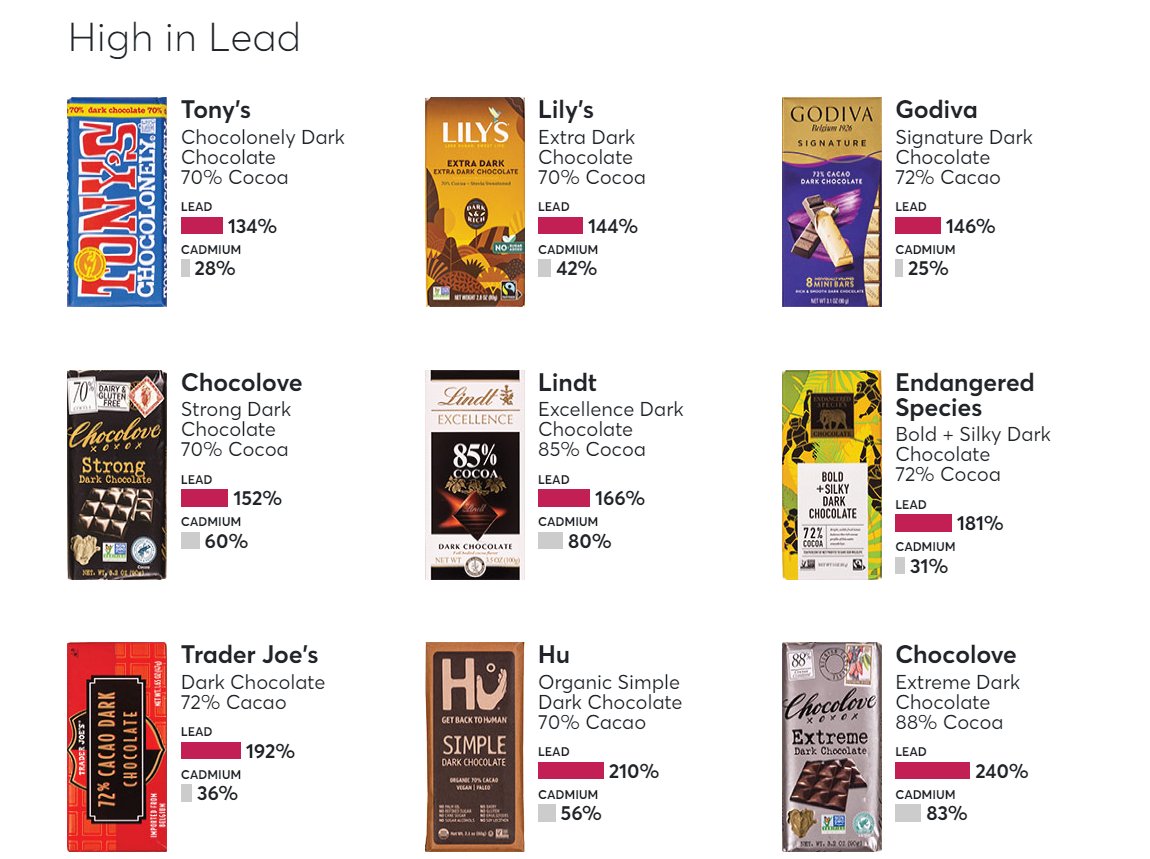
The darker side of dark chocolates
1. Dark chocolates are popular due to their potential health benefits (they are rich in anti-oxidants and are good for heart) and moreover, they are low in sugar content. >50% consider them as safer and healthier option (as compared to candies)
1. Dark chocolates are popular due to their potential health benefits (they are rich in anti-oxidants and are good for heart) and moreover, they are low in sugar content. >50% consider them as safer and healthier option (as compared to candies)
2. But there’s a dark side to this “healthier” #chocolate. Research has found that some dark chocolate bars contain cadmium and lead—two heavy metals linked to a host of health problems.
Consumer report scientists detected cadmium & lead in many dark chocolate samples tested.
Consumer report scientists detected cadmium & lead in many dark chocolate samples tested.
3. Consistent, long-term exposure to even small amounts of heavy metals can lead to a variety of #Health problems. The danger is greatest for #pregnantwomen and young #Children because the metals can cause developmental problems, affect #brain development, and lead to lower IQ.
4. Frequent exposure to #lead in adults can lead to nervous system problems, #hypertension, immune system suppression, #kidney damage, and #reproductive issues.
5. Dark chocolates are at least 65% cocoa by weight. Cocoa beans are rich in flavanols (antioxidants), which make them healthy and unfortunately, heavy metals too lurk in cocoa solids. So, it becomes difficult to balance the benefits and risks.
6. How to minimize the risk?
*Consume dark chocolates with low lead/cadmium content.
*Consume dark chocolates occasionally, or alternate with milk chocolates (lower in heavy metal content)
*Consume chocolates with lower cocoa content.
*Children and pregnant women should avoid.
*Consume dark chocolates with low lead/cadmium content.
*Consume dark chocolates occasionally, or alternate with milk chocolates (lower in heavy metal content)
*Consume chocolates with lower cocoa content.
*Children and pregnant women should avoid.
7. Reference:
(The list of safe and unsafe dark chocolates can also be found here): consumerreports.org/health/food-sa…
(The list of safe and unsafe dark chocolates can also be found here): consumerreports.org/health/food-sa…
• • •
Missing some Tweet in this thread? You can try to
force a refresh










